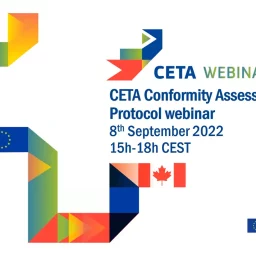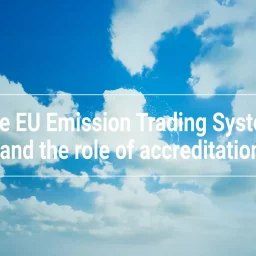Executive Summary
This position paper calls for the preservation of the core principles and scope of Regulation (EC) No 765/2008, which has established a robust and harmonised legal framework for accreditation within the European Union.
Over more than a decade, the European accreditation system — based on a single national accreditation body (NAB) per Member State, operating on a non-profit basis, with independence, impartiality, and mandatory peer evaluation — has consistently ensured confidence, coherence, and mutual recognition of conformity assessment results across Europe and the Single Market.
The Regulation’s current framework applies to all accreditation activities, whether used on a compulsory or voluntary basis, relating to mandatory or voluntary conformity assessments, and irrespective of the legal status of the body performing accreditation. This comprehensive scope has been instrumental in guaranteeing mutual trust, enabling mutual recognition of certificates and results, supporting the free movement of goods and services, and promoting public confidence in both regulated and voluntary markets.
The revision of Regulation 765/2008 offers an opportunity to update certain provisions — for example to address digitalization and emerging technologies, and sustainability — but any changes must preserve the Regulation’s principles and scope. Altering them would risk fragmentation, weaken trust, and introduce legal uncertainty across the internal market and beyond.
1. Background and Context
1.1 Purpose and Achievements
Regulation (EC) No 765/2008 was adopted to create a uniform legal basis for accreditation across the EU, eliminate technical barriers to trade, ensure public trust in conformity assessment, and strengthen the functioning of the Single Market. It defines accreditation as a public authority activity, distinct from commercial conformity assessment, and applies it uniformly — whether the accreditation is used on a compulsory or voluntary basis.
This inclusive scope ensures coherence, transparency, and equal treatment across sectors, avoiding duplication and confusion between regulated and non-regulated domains.
Since its entry into force in 2010, the Regulation has delivered a consistent and reliable accreditation framework. National accreditation bodies operate transparently and in accordance with internationally recognized standards, while the European co-operation for Accreditation (EA) ensures equivalence through a robust peer evaluation system.
The European Commission, in its 2022 report to the European Parliament and Council, confirmed that the Regulation has set a solid and effective legal framework, calling it a significant achievement in strengthening the EU’s conformity assessment system.
Moreover, in the Commission’s Staff Working Document on the evaluation of the New Legislative Framework (SWD(2022) 364 final), the Commission summarized that the accreditation framework as set out in Regulation 765/2008 is considered efficient in the context of balance between costs and benefits.
2. Core Principles, Comprehensive Scope, and Associated Risks
The effectiveness of Regulation 765/2008 lies in the combination of its core principles and its broad, inclusive scope. These features have built a trusted and uniform system that underpins both regulatory and market-driven conformity assessments.
The Regulation’s comprehensive scope — covering accreditation used on both a compulsory and voluntary basis, for mandatory or voluntary conformity assessments, and regardless of the legal status of the accredited body — ensures consistency and equal reliability across all sectors. Narrowing this scope would create regulatory gaps, duplicate systems, and erode confidence in accredited results.
Equally vital is the principle of one national accreditation body per Member State, which ensures clarity of responsibility, public oversight, and uniformity. Introducing competition or multiple accreditation providers would lead to fragmentation, “accreditation shopping,” and unequal treatment across the EU.
Accreditation must remain a public-interest, non-commercial function. Its impartiality depends on freedom from market incentives and conflicts of interest. Allowing commercial competition would undermine trust, create cost pressures, and weaken the rigor of accreditation decisions.
Independence and impartiality are further safeguarded by transparent procedures, objective decision-making, and clear separation from conformity assessment activities. These safeguards are indispensable to ensure credibility and recognition by regulators, industry, and consumers.
The peer evaluation system, coordinated by EA, guarantees the competence and equivalence of NABs. It forms the basis for mutual recognition across the EU, ensuring that certificates issued under one NAB’s oversight are accepted throughout the Union.
Weakening this system, or creating parallel accreditation structures outside it, would jeopardize mutual recognition and the functioning of the Single Market.
Transparency and cooperation between NABs, particularly in cross-border activities, are equally essential. Cross-border accreditation should remain exceptional and carefully coordinated, preserving coherence and avoiding competition.
If any of these principles or the Regulation’s scope were diluted, the risks would be significant:
- Fragmentation of the accreditation landscape, leading to inconsistent practices;
- Loss of trust among regulators, businesses, and consumers;
- Weakening of the EA Multilateral Agreement (MLA) and mutual recognition;
- Legal uncertainty over the validity of accreditations;
- Reputational damage to the European accreditation system as the best and respected accreditation architecture globally.
The current balance — a single, impartial, peer-evaluated NAB per Member State, applying uniform rules across all accreditations — remains the most effective structure for safeguarding quality, trust, and market efficiency.
3. Enhancement within the Existing Framework
While the Regulation’s architecture is sound, it should be enhanced to respond to new challenges within its existing scope and principles. This could include:
- Strengthening accreditation as the only means to demonstrate the competence of conformity assessment bodies seeking notification in order to ensure a uniformly high-level performance of notified bodies and their fair competition throughout the Union.
- Explicit consideration of emerging sectors, including artificial intelligence, circular economy, and sustainability.
- Continued capacity building for NABs to ensure in emerging sectors consistent competence across all Member States.
- Enhancing cooperation between the European Commission and EA as well as national authorities and NABs.
These adaptations should complement the Regulation’s current framework, not alter its foundations.
4. Recommendations
In revising Regulation (EC) No 765/2008, the European Commission should:
- Reaffirm the Regulation’s comprehensive scope, ensuring that it continues to apply to accreditation used on a compulsory or voluntary basis, relating to mandatory or voluntary conformity assessments, and irrespective of the legal status of the accredited body.
- Preserve the fundamental principles: one NAB per Member State; non-commercial, impartial, and peer-evaluated operations; and mutual recognition based on EA peer evaluations.
- Avoid introducing competition or alternative accreditation structures.
- Ensure legal continuity and stability to maintain trust and predictability.
Update the Regulation to enhance accreditation and the cooperation between the European Commission and EA as well as national authorities and NABs.
5. Conclusion
Regulation (EC) No 765/2008 has created a stable, trusted, and effective European accreditation system that supports both regulatory oversight and market confidence. Its principles are proven, and its comprehensive scope is essential for coherence and equal treatment.
The forthcoming revision should enhance and update the Regulation to address future needs, but must not compromise the structural integrity that has made the European accreditation system a global model of excellence.
Maintaining the Regulation’s full scope and foundational principles is the only way to ensure continued trust, mutual recognition, and the smooth functioning of the Single Market.
Download here the full position paper.
The EU Carbon Border Adjustment Mechanism (CBAM), which entered into force on 1 January 2026, is a climate policy tool designed to prevent carbon leakage and ensure fair competition between EU and non-EU producers.
EA established a TFG EU CBAM, which commences with its activities beginning of March 2026.

















